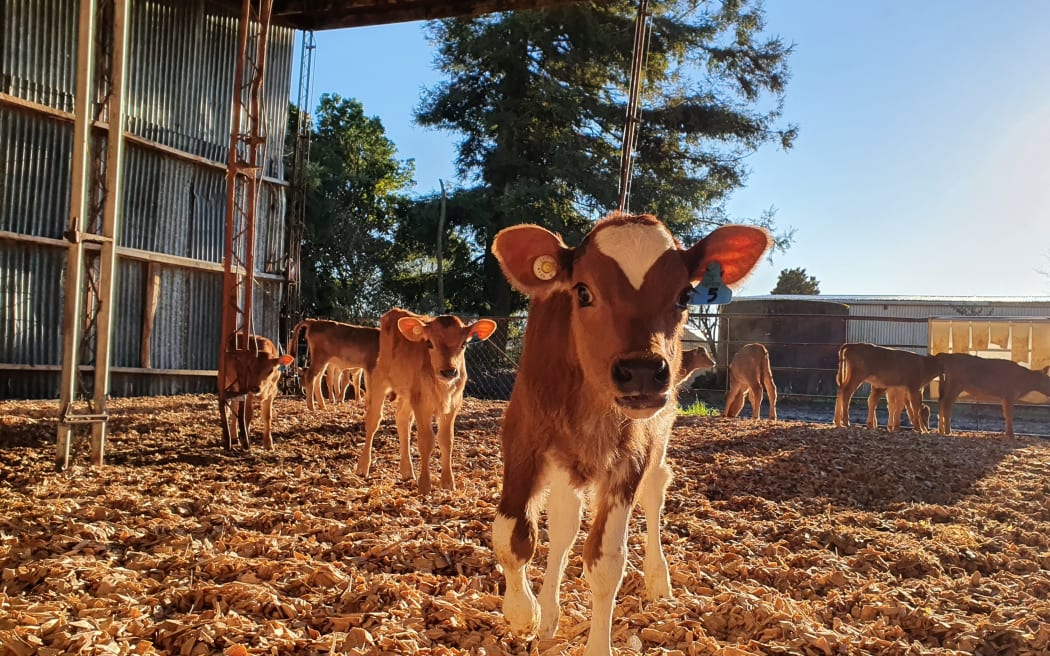
The research surveyed 370 farmers on how they managed health and safety risks and where injuries occurred during the calving period. (File image) Photo: RNZ/Sally Round
Researchers from Dairy NZ are looking into the injuries farmers sustain during the busy calving period and how they can be prevented.
The industry group's research, co-funded by ACC, is researching the causes of sprains and strains on dairy farms, aiming to develop practical solutions to reduce injuries.
Spring is a busy time for farmers, who put in long hours during the calving period on top of their regular work.
DairyNZ senior scientist and research lead Dr Callum Eastwood said as calving progressed fatigue could set in and increase the risk of injuries.
"Around 40 percent of injuries on dairy farms are sprains and strains, with the highest risk from August to October," Dr Eastwood said.
"We know farm teams are working outdoors, in milking sheds, with animals and vehicles," he said.
"The nature of their work means there is a risk of injury, particularly in busy times.
"Farmers reported injuries from lifting calves or buckets, from uneven ground and getting off motorbikes. In the milking shed, slippery surfaces and tripping on hoses are hazards."
As part of the project, 370 farmers were surveyed on how they managed health and safety risks and where injuries occurred, he said.
Those surveyed used a range of strategies to reduce injuries, such as sharing calf collection duties across the team, using a specialist trailer to transport calves, and piping milk into calf feeders rather than using buckets, Dr Eastwood said.
Other tips included tucking hoses away in the shed and using footwear with a greater grip.
ACC workplace safety manager Virginia Burton-Konia said many of the most common injuries during calving were thought to be preventable.
"On average, the survey showed people who were injured needed 12 days off work, but took around 27 days to fully recover," Burton-Konia said.
"With farms often short-staffed, new ideas to avoid injuries and make the job easier will ensure everyone can help out at the busiest time of year."
Dr Eastwood said the next step of the three-year research was developing prototype options for farmers to use to reduce injuries.
A calf pick-up trailer designed to reduce back strain was being developed for farmer feedback, he said.
"When you've got a 30kg to 40kg calf you're picking up and it's wriggling, having to hold it and open a gate can be quite difficult," he said.
"So we're trying to take away one of those actions, so you can be in a stronger position when you're putting the calf into a trailer."
Dr Eastwood recommended farmers discuss with their staff what the risks were during calving and how they could be reduced.
"Many safety strategies farmers can adopt are low cost, are easily adopted, and are good for business as well," he said.
The researchers are working with farmers to improve the prototypes, which are hoped to be available to buy within the next few years.

